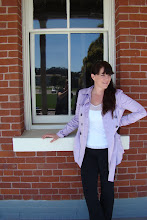
One of the most religious moments I ever had came when I was about to get married. We were standing in Sheikh Khaled’s Halal Meat Market waiting for the sheikh to finish cutting up a lamb. My ex was chatting with two guys that our hippie friends liked to call the FBI – the Freaky Brothers of Islam – because they wore dark suits and sunglasses when they went proselytizing. I, the lone woman in the room, stood off to the side, next to a glass case full of prayer beads.
I was looking at the wall. There was an extraordinary poster there, showing pilgrims at Mecca circling the Kaaba. I had heard about this part of the Hajj but never actually seen it. Hundreds of thousands of people walking around a great black box. Every pilgrim was wearing two sheets of white cloth. The uniformity of it, the singleness of purpose, and the sheer number of people filled me with a sudden sense of astonishment. What would it be like? What force gets generated by a crowd of that size – a crowd of people who believe in their actions? I could feel it as I stood there. The Halal Meat Market faded and I was swept into that immensely powerful, emotional current that gets generated when millions of people all turn their attention and energy to a single purpose. It was spectacular and beautiful. I actually started to cry.
Okay, it’s
possible that Miss Walter Mitty was also crying about the wedding – the sheikh’s bloody smock, the FBI, the sound of a grinder? Hmmm. But that sense of awe was bigger than anything else around it. It got lodged in me as a shard of enlightenment. It said: here is something much greater than you, but strangely it makes you feel large and powerful, like you’ve encompassed the world.
In America, there are plenty of excuses to put yourself in a crowd. Ball games, concerts, parades. Sometimes it gets exciting, like the cheers that went up in Mann’s Chinese Theater when R2-D2 appeared in
The Phantom Menace after a 20 year absence from the screen. But I have seldom felt swept into that singleness of purpose in a crowd, because mostly crowds are just loud and crazy.

Last fall, I went to Keeneland and saw my first race. When the horses came exploding out of the gate, there was a lot of raucous cheering, then a kind of quiet followed – some people holding their breath, others hooting for their favorite horses. When the horses got halfway around the track, they were so far away that you had to watch a big television screen to distinguish them. Around me, people were analyzing. “Look at number 5, he’s too far to the outside.” Some people were just yakking away about their kids and who spilled the beer.
But when the horses came around the final bend, the crowd became focused. The horses seemed electrified. They picked up speed. No more distinct voices. The upswell of individual sounds – cheering, shouting and begging – merged into a giant reverberation. It gathered momentum, rose up and rushed forward with tsunami-like force. I stood riveted, caught up in the extraordinary energy of ten thousand people all focused on something unknowable.
Then it was over. The reverberation died. Some people whooped with joy, others looked stunned. Perhaps they lost their bets. Their disturbed expressions made me think of Obi-Wan: “as if millions of voices suddenly cried out in terror, and were suddenly silenced.”

A friend of mine says she has experienced a transcendent force in a meditation group. But Keeneland is all about sound and physical energy. By the third race, I was shouting. I don’t even know what came out of my mouth. I couldn’t tell you what my body was doing. I was beyond myself. I’ve been to ball games, but even then, the sudden explosion of excitement when someone scores a goal or crosses the finish line is not the same as that crescendo that happens in racing.
I don’t care where you find it, when a joyful crowd acts as one, some extraordinary energy gets unleashed into the universe and makes it a happier place.
 Let's say your husband dies in a tragic hunting accident. Is anyone going to say: think what this will do for your sex life! Yeah, they might think it, but let's hope they're not graceless.
Let's say your husband dies in a tragic hunting accident. Is anyone going to say: think what this will do for your sex life! Yeah, they might think it, but let's hope they're not graceless.


























